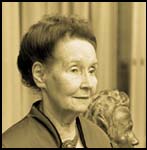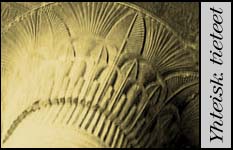 |


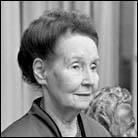
|

INKERI ANTTILA
pioneer in criminology
first female Doctor of Laws
Professor of Law
Minister of Justice
1916-
|
 |
 |


First female Doctor of Laws, Professor of Law and Minister of
Justice in Finland

The rational and humane direction that Finnish criminal policy
has taken during the last decades is largely the result of the
life's work of Inkeri Anttila and her colleague Patrik
Törnudd. Inkeri Anttila has been a key figure in the reform of
the Finnish criminal code and especially its system of
follow-up.

Anttila s research on criminology and criminal policy have had
a definite impact on the international legal forum, and her
research in the field of victimology has especially been of a
pioneering nature. In the field of criminal policy, Anttila is
known for her criticism of unfounded optimism about
correctional therapy.

Inkeri Anttila entered on an academic career during the Second
World War. While caring for her three little children and
serving at a district court, she was preparing her doctoral
dissertation, which she defended in 1946. Anttila's views on
criminal law began to take shape in the 1950s when she worked
at the Ministry of Justice Department of Prison
Administration. The atmosphere of prison administration was
more liberal than at the University of Helsinki, where Anttila
taught criminology, a discipline shunned by the other
professors. She also studied sociology, which broadened her
perspective on criminal law. Still another factor which
affected Anttila's later views on criminal policy was her
membership in a radically inclined committee on juvenile
crime. Anttila was actively involved in cooperation with the
other Nordic countries.

In 1961 Inkeri Anttila became the first woman in Finland to
hold a chair in law when she was appointed to a professorship
in criminal law. In the 1960's liberalism became an integral
part of her views on criminal law. In her mind, crime could
not be eliminated, but a rational criminal policy could have
an effect on the quantity and quality of crime.

Throughout her career Anttila combined research with social
interests. In the 1960's and 1970's she headed the National
Research Institute of Legal Policy and chaired committees on
abortion legislation and probation and after-care of released
offenders. When serving as Minister of Justice in 1975, she
made legislative initiatives which resulted in Government
bills on the reform of conditional sentences, parole and
sentences on drunken drivers. Since 1980 Inkeri Anttila has
been vice chair of a committee preparing an overall reform of
the Finnish criminal code.

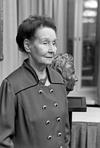 1 1

 2 2
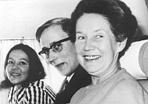 3 3
 4 4

1, 2 Bust of Inkeri Anttila was unveiled at the University
of Helsinki November 18, 1996. The artist was Edgar Viies from Estonia.
Photo: Eero Roine, University AV-centre.

3 Inkeri Anttila with her assistant Raimo Lahti and his wife Varpu
travelling to a conference on crimilal law held in Rome in 1969.
Photo: Raimo Lahti.

4 Professors and teachers of the faculty of law in the 1950s.
Photo: Raimo Lahti.

|
 |
|
